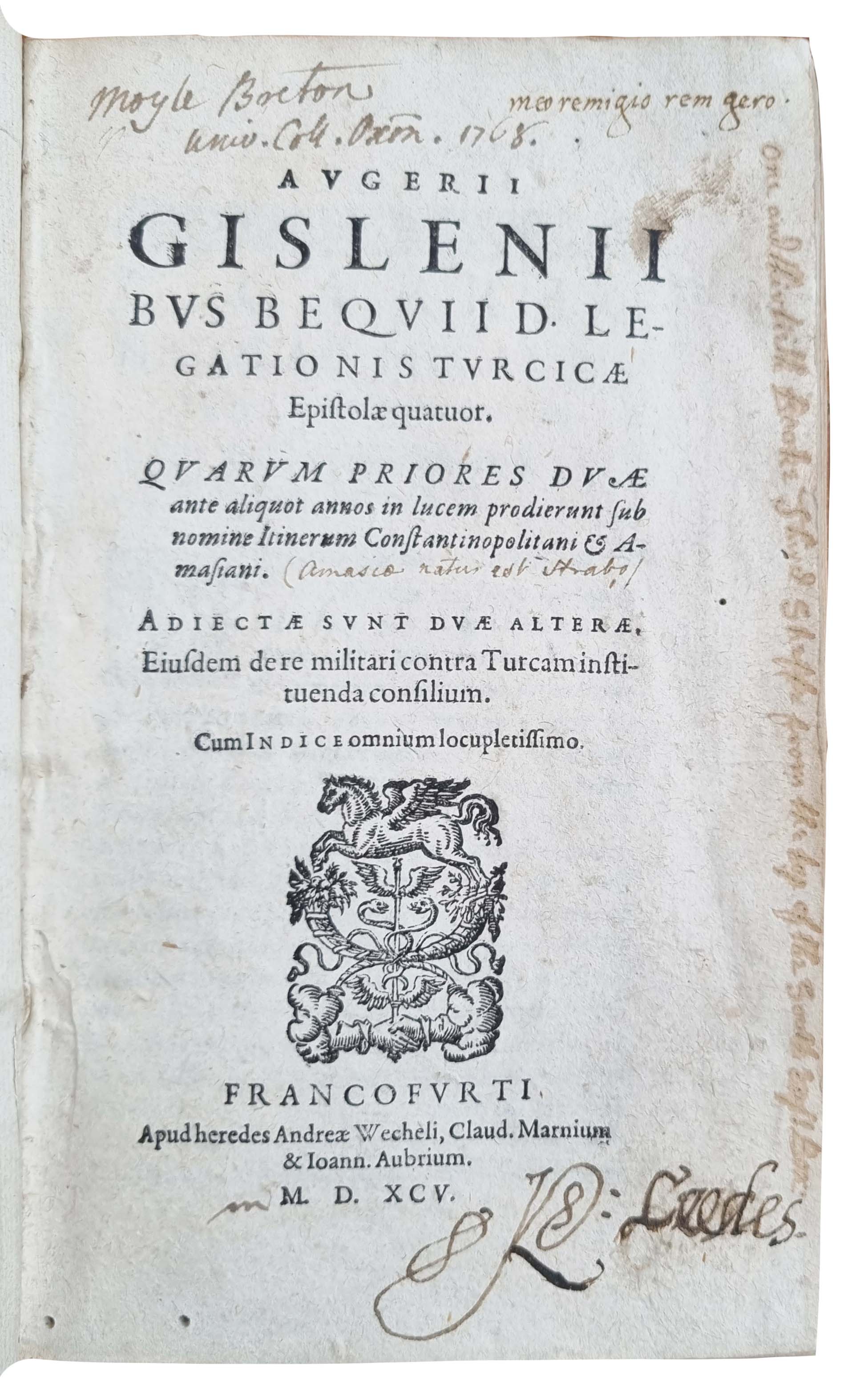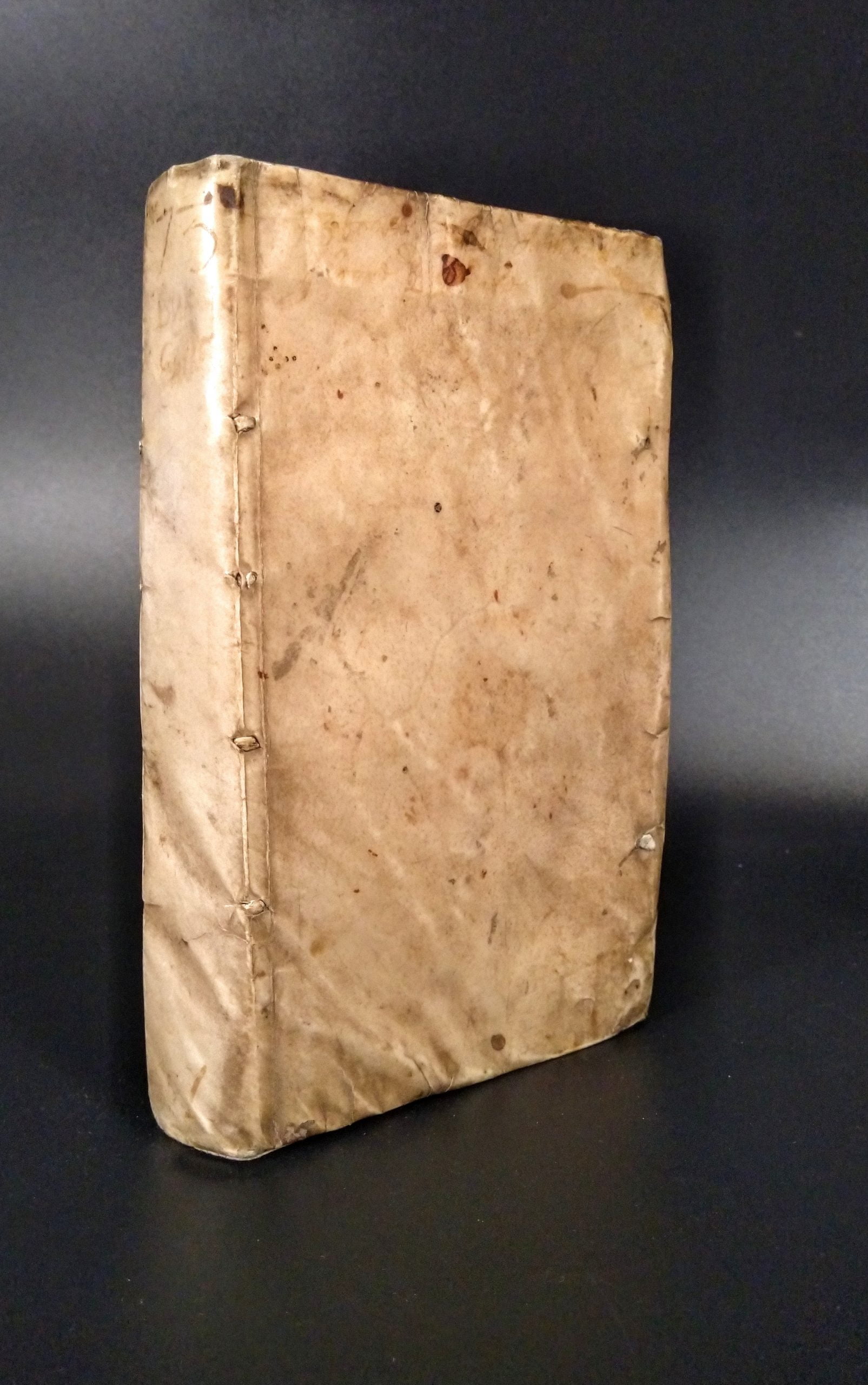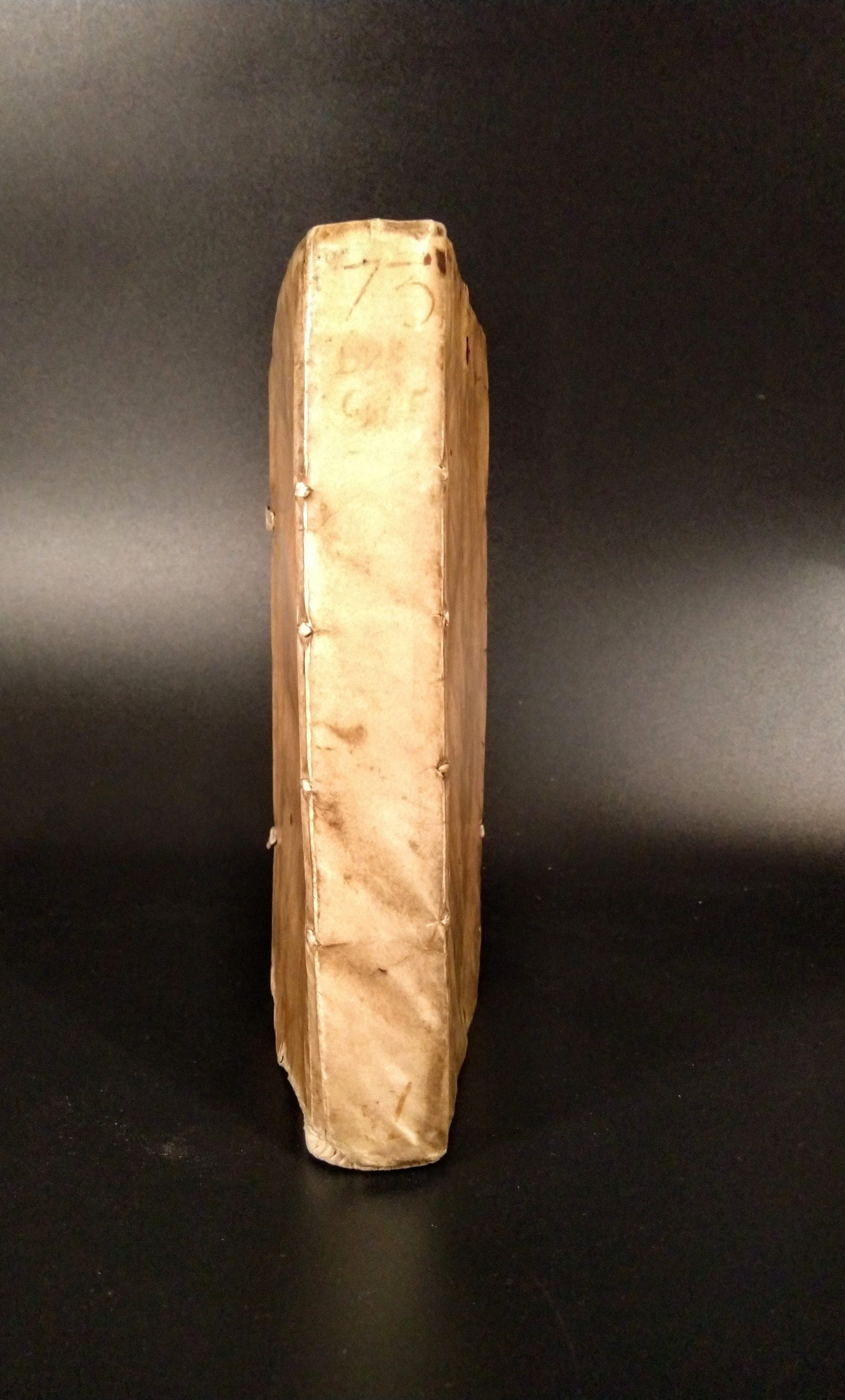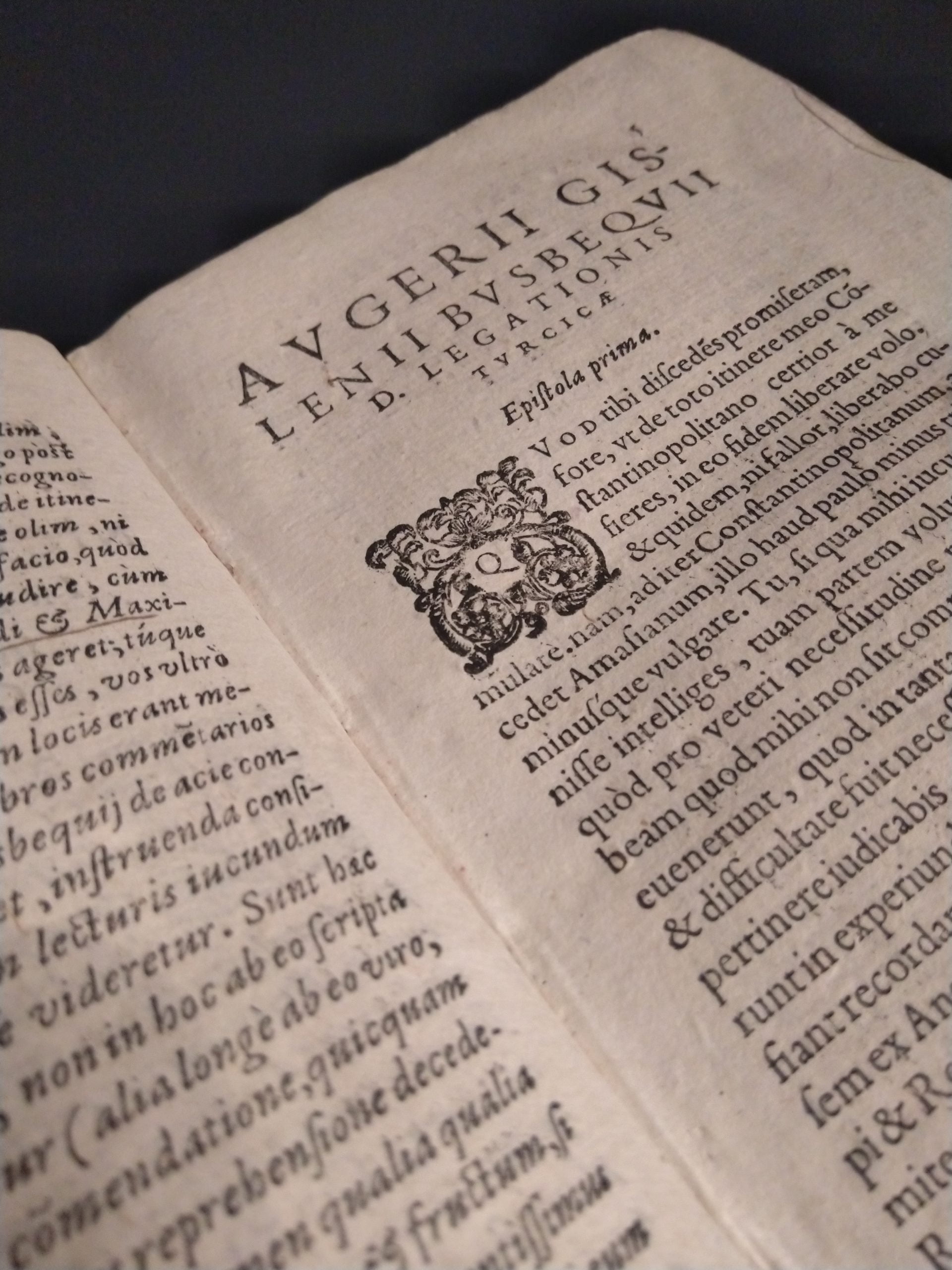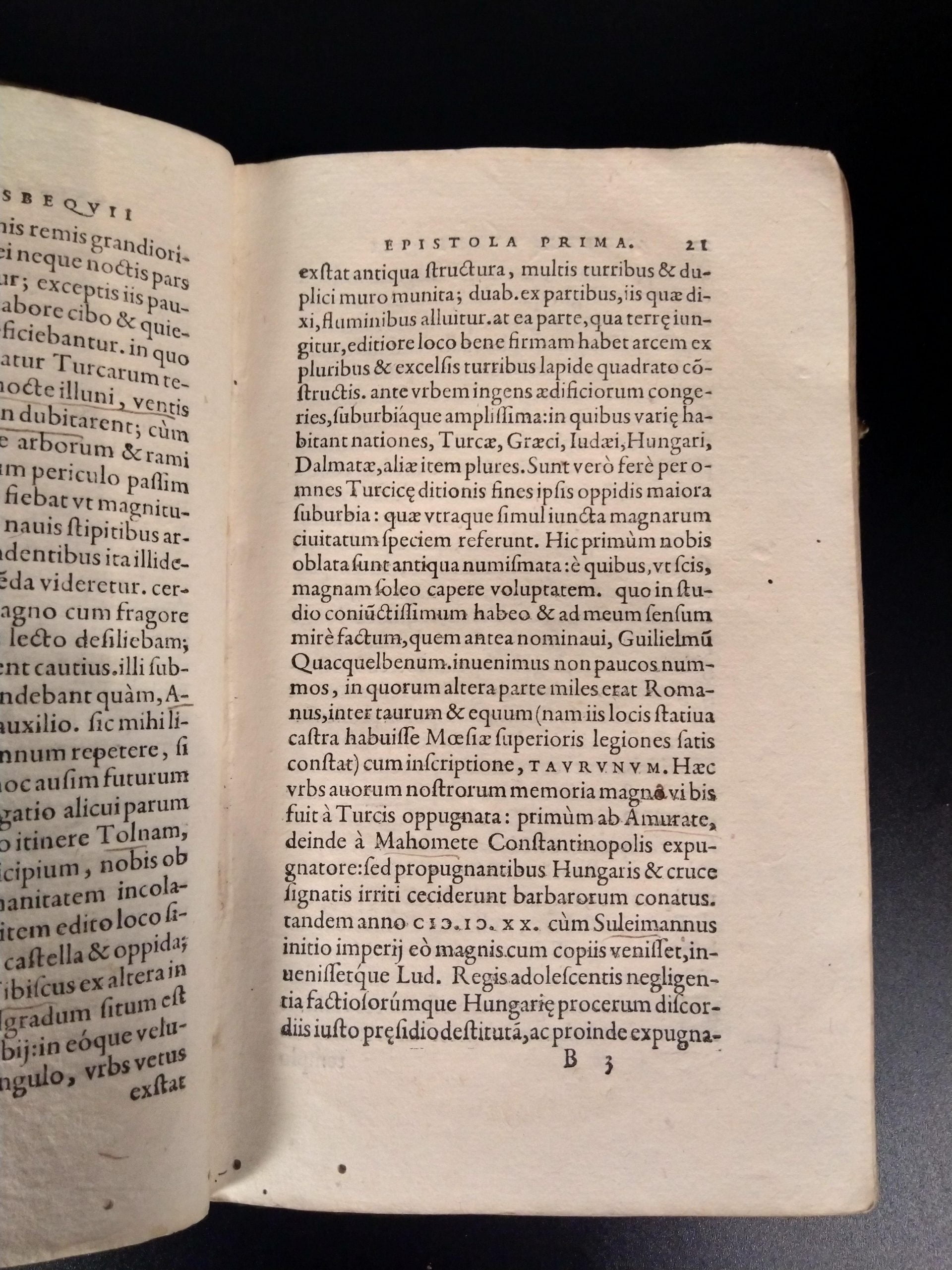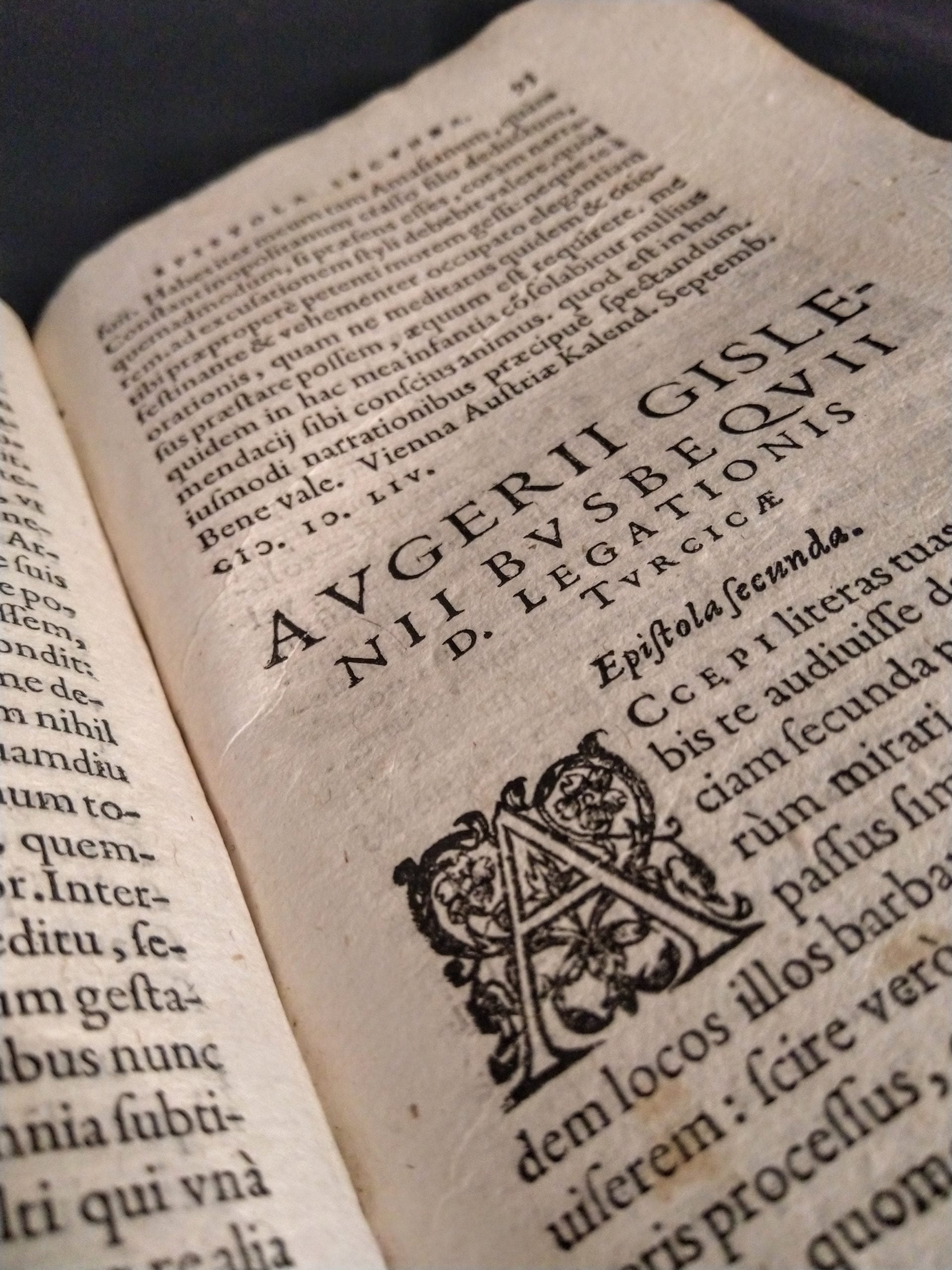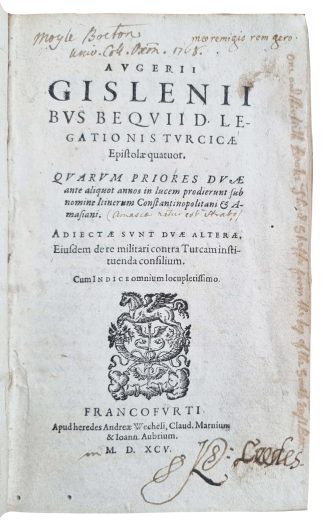BUSBECQ, Ogier Ghislain de.
A VERY EARLY ACCOUNT OF THE OTTOMAN WORLD
Legationis turcicae Epistolae quatuor.
Frankfurt, apud A. Wechel (heirs of), C. de Marne and J. Aubry, 1595£1,500.00
8vo. pp. 360 (xxiv). Roman letter, little Italic. Woodcut printer’s device to t-p and last, decorated initials and ornaments. Blank margins somewhat wormed, intermittent faint water stain to upper outer corners, paper flaw to upper outer corner of F2 and outer lower of T4, outer and lower edges of last gathering softened and little frayed, couple of holes to outer blank margin of last two ll. A good clean copy in contemporary limp vellum, traces of ties, title and shelfmark inked to spine, lower edges of rear cover chewed. Latin verse in contemporary hand inked to fly, inscriptions ‘Moyle Breton Univ. Coll. Oxon. 1768’, ‘Amasia natus est Strabo’ (late C17, a scholarly gloss), ‘one and thirtieth booke third shelf from the top of the South East Box’, ‘meo remigio rem gero’ (motto) and ‘R Leedes’ (c.1600) inked to t-p, occasional annotations in contemporary hands, casemark inked to outer and lower fore-edge.
Second edition of these remarkably important letters on Turkey, written in the 1550s, with the only surviving glossary of a long-extinct Germanic language. Ogier Ghiselin de Busbecq (1522-92) was a scholar, keen herbalist and diplomat in the service of the Austrian monarchy; he spent several years in Constantinople where he negotiated the boundaries of disputed territories and was involved in politics at the court of Suleyman the Magnificent. First published without authorial licence in Paris in 1589 as ‘Itinerarium Constantinopolitanum’, ‘Epistolae’ is his most famous work and one of the earliest Western testimonies on the Ottoman world. It gathers letters which Busbecq sent to the Hungarian diplomat Nicholas Michault. In addition to observations on the natural environment, he included in his work the first and only recorded glossary (80 words), as well as the excerpt of a song, in a Crimean dialect. Having heard of a Germanic language being spoken in Turkey, he managed to have an interview with a native speaker noting words close to Dutch (e.g., ‘tag’ ‘day’, ‘plut’ ‘blood’), others which differed, and cardinal numbers (Considine, ‘Dictionaries’, 140-41). Busbecq also expresses strong opinions on the conquest of the New World, as colonisers ‘seek the Indies and the Antipodes through the vastity of the ocean because there the booty is easy to take from naïve and gullible natives, without bloodshed’. One of the English annotators of this copy, who wrote in English, Greek, Latin and Arabic, was a scholar at University College, Oxford, as per ex-libris on t-p. He wrote in Arabic the word ‘sherbet’ to gloss a sentence on ‘sorbet’, a cooling fruit drink typical of Eastern territories; according to the OED, the word was first recorded in English in 1603. He was also interested in Busbecq’s observations on Turkish flora and fauna, as he glossed ‘glycyrrhiza’ as ‘liquorish’ and ‘sicedula’ as ‘nightingale’ and ‘beccafico’. The Latin verse on the fly reprises some of the epigraphs which Busbecq used to conclude his accounts, e.g., the Tacitean ‘religion is the pretext, the object is gold’ in his discussion of the conquest of the New World. A very influential work in the history of Western perceptions of the Ottoman world.
A jeweller named William Leedes took part in expeditions of the Turkey Company in 1579 and 1584, with other merchant adventurers, arriving as far as Baghdad.
Göllner 2026; Graesse I, 580 (1605 ed.); Blackmer 249. Not in BM STC Ger. or Alden. J. Considine, Dictionaries in Early Modern Europe (Cambridge, 2008); The Turkish Letters of Ogier Ghiselin de Busbecq, ed. E. Seymour Forster (Baton Rouge, 2005).In stock


